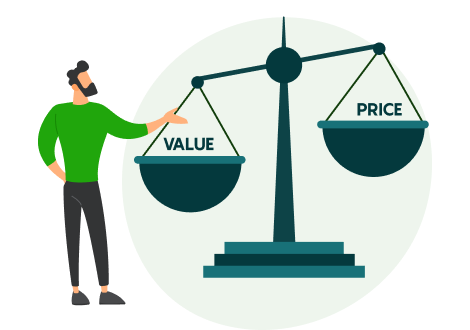Decoding Storage Prices:
Understanding Self-Storage Prices
Self-storage has become an indispensable solution for
individuals and businesses seeking extra space without the commitment of
long-term leases. However, when exploring the realm of self-storage,
deciphering the pricing structure can be as intricate as solving a puzzle. In
this article, we'll unravel the factors that influence self-storage prices,
empowering you to make informed decisions and optimize the value of your
storage experience.

-
Location
Dynamics: Much like the adage in real estate, the location of a
self-storage facility significantly influences its pricing. Facilities
situated in prime, high-demand areas or near urban centers typically
command higher prices. Consider the convenience of access against the
potential cost savings when choosing a location for your self-storage
needs.
-
Unit
Size and Type: The size and type of storage unit you opt for are
primary determinants of the overall cost. Self-storage facilities offer a
range of unit sizes, from compact lockers to expansive garage-style
spaces. Assess your storage needs accurately and choose a unit that
accommodates your belongings without unnecessary extra space.
-
Climate-Controlled
Units: For items sensitive to temperature and humidity
fluctuations, such as electronics, wooden furniture, or delicate fabrics,
climate-controlled units are available at a premium. These units maintain
a consistent environment, protecting your valuables from potential damage
caused by extreme conditions.
-
Security
Features: The level of security provided by a self-storage
facility can impact the pricing structure. Facilities equipped with
state-of-the-art security measures, including surveillance cameras, access
controls, and on-site personnel, may have slightly higher prices. However,
the assurance of your belongings' safety is often worth the investment.
-
Amenities
and Services: Some self-storage facilities offer additional
amenities and services, such as 24/7 access, package acceptance, or moving
supplies. While these extras can enhance your storage experience, they may
contribute to higher prices. Evaluate your needs and prioritize facilities
that align with your requirements and budget.
-
Rental
Terms and Commitment: The terms of your rental agreement play a
role in determining the cost of self-storage. Month-to-month rentals
provide flexibility but may come at a slightly higher price than
committing to a more extended contract. Consider your storage duration needs
and weigh the cost implications of different rental terms.
-
Promotions
and Discounts: Keep an eye out for promotions, discounts, or
special offers provided by self-storage facilities. Many facilities run
introductory promotions or offer discounts for long-term commitments.
Taking advantage of these opportunities can result in significant cost
savings.
-
Insurance
Coverage: While not included in the base price, insurance
coverage for your stored items is a crucial consideration. Some facilities
offer insurance options, while others may recommend third-party providers.
Factor in insurance costs when assessing the overall expense of your
self-storage solution.
Understanding the intricacies of self-storage prices
empowers you to make informed decisions tailored to your needs and budget. By
considering factors such as location, unit size, amenities, and security
features, you can navigate the self-storage landscape with confidence. Remember
to strike a balance between cost and the features that matter most to you,
ensuring a storage solution that meets both your financial and spatial
requirements.
